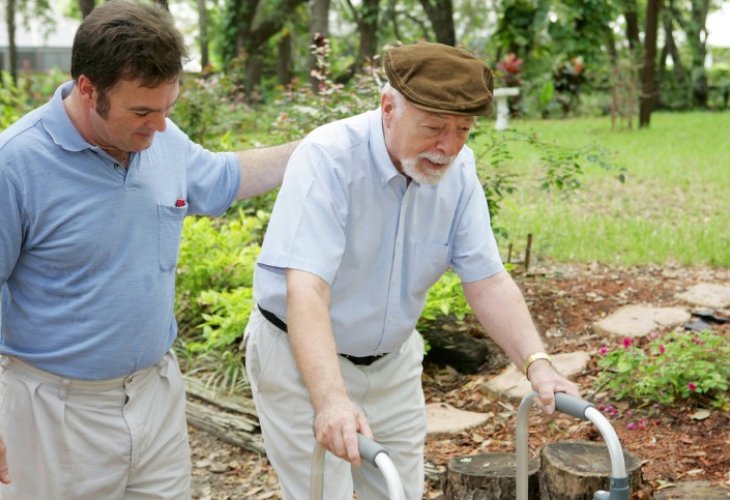Personality Development
Keys to Life: Respect for the Elderly
Understanding the mitzvah to honor the elderly and Torah scholars, its spiritual significance, and practical laws.

The Torah commands us: “You shall rise before the aged and show respect to the elderly, and you shall fear your G-d- I am the Lord.”
A person who sees physical strength and external appearance as the main purpose of life will often look down on the elderly, because after all, they are physically weaker, move more slowly, and no longer embody physical power. But someone who understands that the body is merely a temporary covering for the true self (the soul), sees in an elder a person rich in life experience, and respects them as someone spiritually elevated.
The physical forces of youth are usually strong in the young and subdued in the old, allowing the inner spirituality of a righteous elder to shine through more clearly. As the Maharal explains: “When a person is in the prime of life, they are not yet 'divine.' But in their later years, as the physical weakens, their spiritual nature becomes dominant.”
For this reason, the Torah commands us to rise in honor of an elderly person who has reached the age of seventy as their life stage is one of greatness.
Similarly, a young person who has acquired the wisdom of Torah, is considered spiritually elevated and must also be honored. The Sefer HaChinuch explains the mitzvah of honoring sages and the elderly: “Our sages taught: ‘Elder’ (zaken) means one who has acquired wisdom. And what is considered a true acquisition in the eyes of the Torah? Only that which is eternal- namely, Torah wisdom.”
He continues: “The essence of our creation is to gain wisdom and recognize our Creator. Therefore, we are commanded to honor those who have acquired it, so others will be inspired to pursue it as well.”
Even someone elderly but not wise in Torah still deserves honor, as they have experienced life and seen G-d's wonders in the world. This too, explains the Sefer HaChinuch, is reason for respect.
The Talmud relates that the sages themselves showed honor even to elderly non-Jews:
Rabbi Yochanan would stand before elderly Arameans, saying, “How many life experiences they must have lived through!”
Rava didn’t stand fully, but still showed respect.
Abaye would offer his hand to help elderly non-Jews walk.
A Selection of Laws from the Shulchan Aruch Regarding Respect for the Elderly and Sages include:
It’s a positive mitzvah to stand before any Torah scholar, even if they are young.
It’s also a mitzvah to stand before someone aged seventy or older- even if they are unlearned, as long as they are not wicked.
One must stand when they come within four amot (about 6 feet) and remain standing until they pass.
One may not close their eyes to avoid the obligation to stand.
We don’t stand for elders in a bathroom or bathhouse.
Artisans are not obligated to interrupt work to stand, unless they’re working for others and choose to be stringent.
A sage should not go out of their way to make people stand for them, and it's meritorious if they can avoid it altogether.
Even a great sage must show some honor to an extremely elderly person, even if they’re unlearned.
One must at least nod or show some form of respect, even without standing fully.
We stand not just for a sage’s teacher but also for the Av Beit Din (chief of the court), and Nasi (president), following specific guidelines about when and how.
If a scholar sees another scholar passing, he too must stand.
All these rules apply even while studying Torah.
Even sages must stand before those known for outstanding good deeds.
If a respected figure waives their honor, it may be waived- but still, honoring them is a mitzvah.

